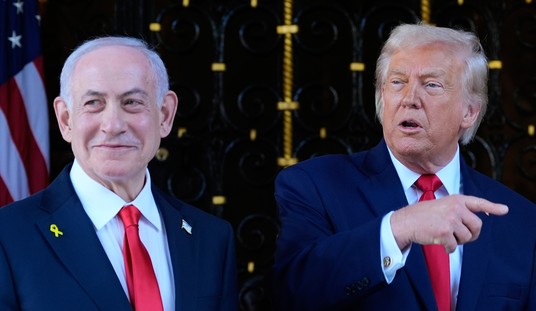Clive Davis writes that Mrs. Miniver is dead:
For the benefit of TCS readers under the age of 40, I should explain that Mrs. M — played by Greer Garson in the Hollywood film — represented all that was best about war-time Britain — or more precisely that strawberries-and-cream realm known as Middle England. For most of the Cold War, her demure image still cast its spell over the custodians of the Special Relationship.
The world moves on. Britain is a very different place now, although this may come as news to all those people who – until the recent terror attacks anyway — based their perceptions of this country on bland, air-brushed movies such as “Notting Hill” and “Love, Actually”. Sure, London does look very attractive as a backdrop to the foppish Hugh Grant. What Americans miss amidst the soft-focus photography and the vistas of immaculate west London town-houses (which usually only foreign bankers can afford) is the changing face of the country at large — and of Middle England in particular.
Immediately after 9/11, much was made of such ceremonial gestures as the playing of “The Star-Spangled Banner” at the Changing of the Guard. Dig a little deeper, though, and there’s no mistaking the hostility to American values among large sections of the British population. Conservative commentators in the US have got plenty of mileage out of jibes at French anti-Americanism; the unpleasant truth is that Britain is home to a similar phenomenon. Last October an ICM opinion survey registered a sharp increase in hostility to the US. A startling 73% of British voters felt that the US exercised too much influence around the globe. As the Guardian reported at the time: “A majority in Britain also believe that US democracy is no longer a model for others. But perhaps a more startling finding from the Guardian/ICM poll is that a majority of British voters — 51% — say that they believe that American culture is threatening our own culture.”
Where has this hostility come from? Well, to some extent, it was always there. Even at the height of WW2, while Mrs. Miniver was pruning roses as Spitfires flew overhead, attitudes to Americans were decidedly mixed. Hence that famous catch-phrase about US servicemen: “over-paid, over-sexed, and over here”. Angus Calder’s vivid account of the wartime UK, “The People’s War”, points to the result of a popularity poll conducted in 1943. Americans were well down the list of admired allies: “After Mussolini’s fall in the summer of that year,” writes Calder, “they were actually less well spoken of than the Italians…”
There’s no question that media bias plays a major part in skewing public perceptions. The BBC, which once brought us that epic TV series “Alistair Cooke’s America”, seldom misses an opportunity to portray the States as violent, dysfunctional and imperialist. A left-liberal mind-set is de rigueur at Broadcasting House, tarnishing what is still, in many ways, a great institution. In this closed world neocons, not Islamists, are regarded as the great threat to democracy. Unfortunately, even in these days of multi-channel broadcast, the Corporation’s huge resources and its immense cultural reach mean that it still sets the agenda. While the national press is slightly less shrill, pro-American commentators are very much a minority. When the first bouts of hysteria erupted over Guantanamo Bay, it was the Mail on Sunday — regarded as the voice of Middle England — which published some of the shrillest commentary.
Perhaps as a consequence of all those hours spent sighing over Hugh Grant, Americans tend to assume that British are much more worldly and sophisticated than they really are. The truth is, when it comes to knowledge of American history and institutions, the Brits are woefully uninformed. What they are familiar with is American popular culture, which is — as I don’t need to remind you — a different thing all together. The result of that false sense of familiarity is a toxic combination of ignorance and arrogance. Besides, the British middle classes (like many of their counterparts in the US) do not necessarily see American popular culture as an unmitigated force for good. As the cultural critic Martha Bayles observes in an essay on public diplomacy in the latest edition of the Wilson Quarterly: “Popular culture is no longer ‘America’s secret weapon.’ On the contrary, it is a tsunami by which others feel engulfed. “
That last item is, of course, yet another biproduct of modern Hollywood.
(What’s a Chav, you ask? Click here for all you need to know.)










Join the conversation as a VIP Member